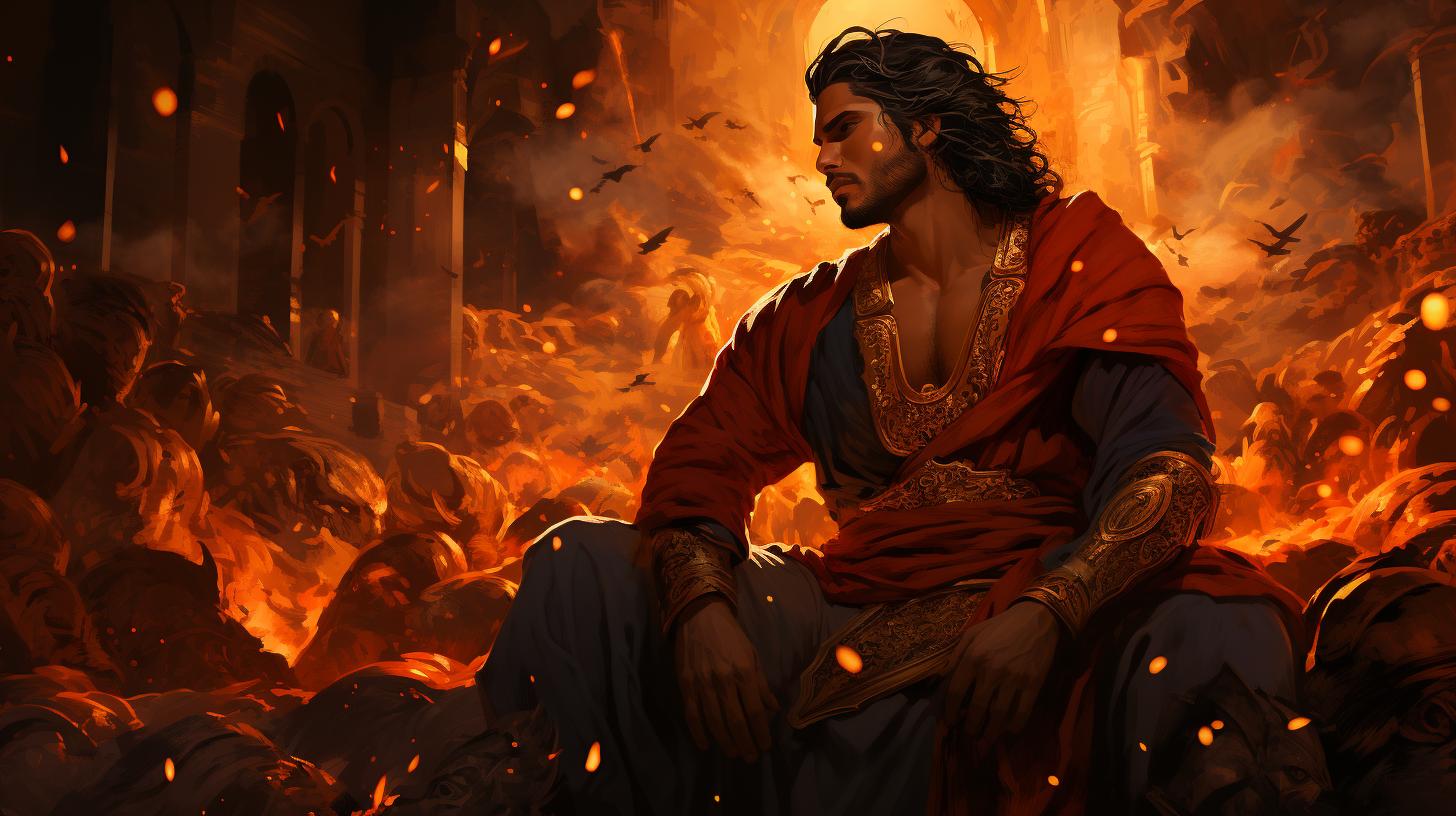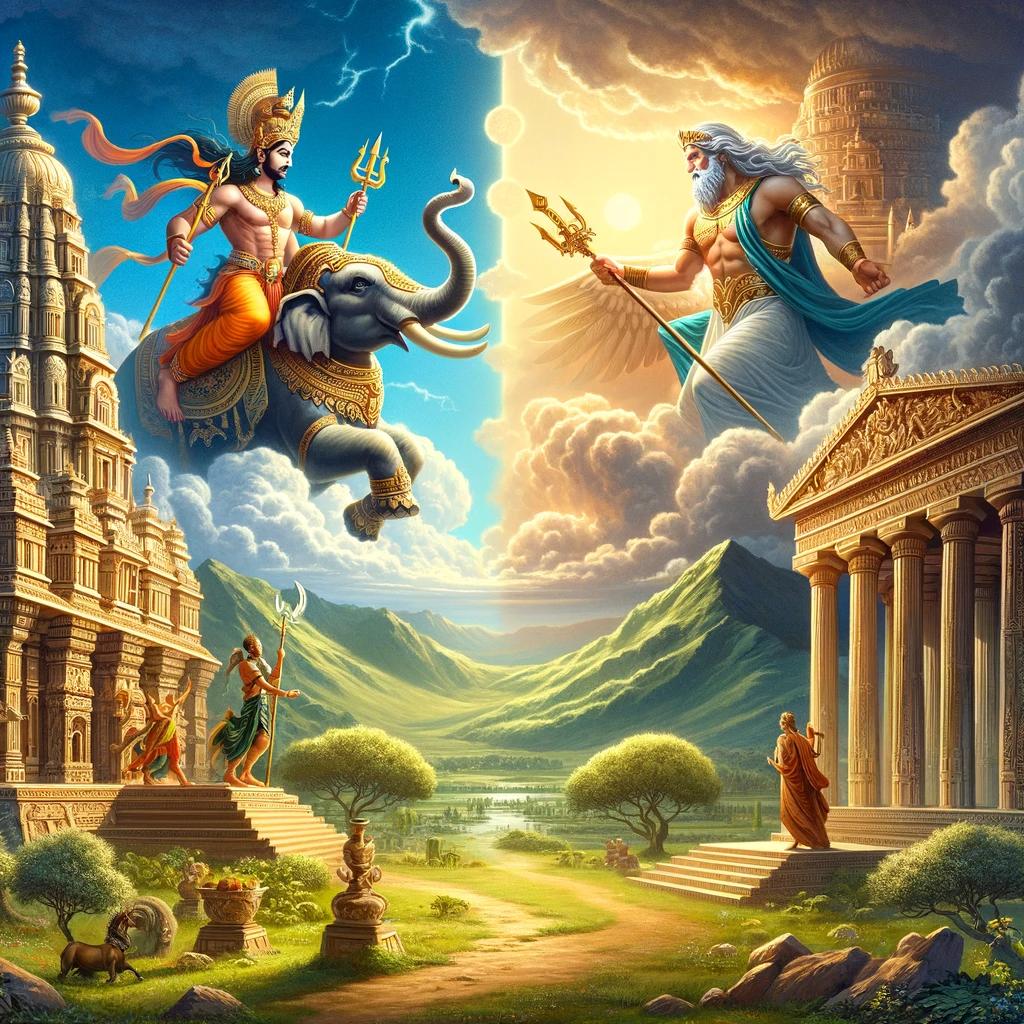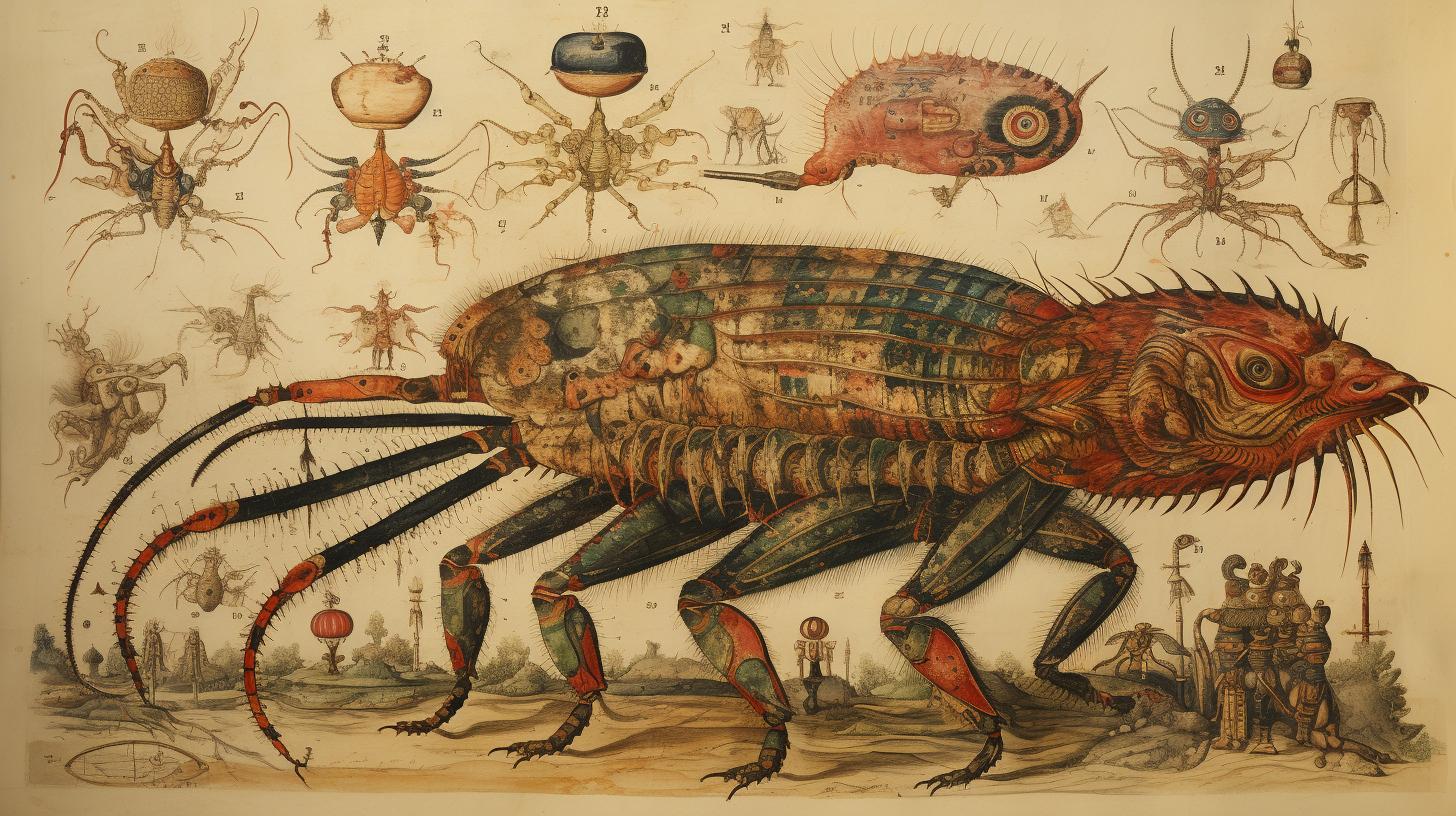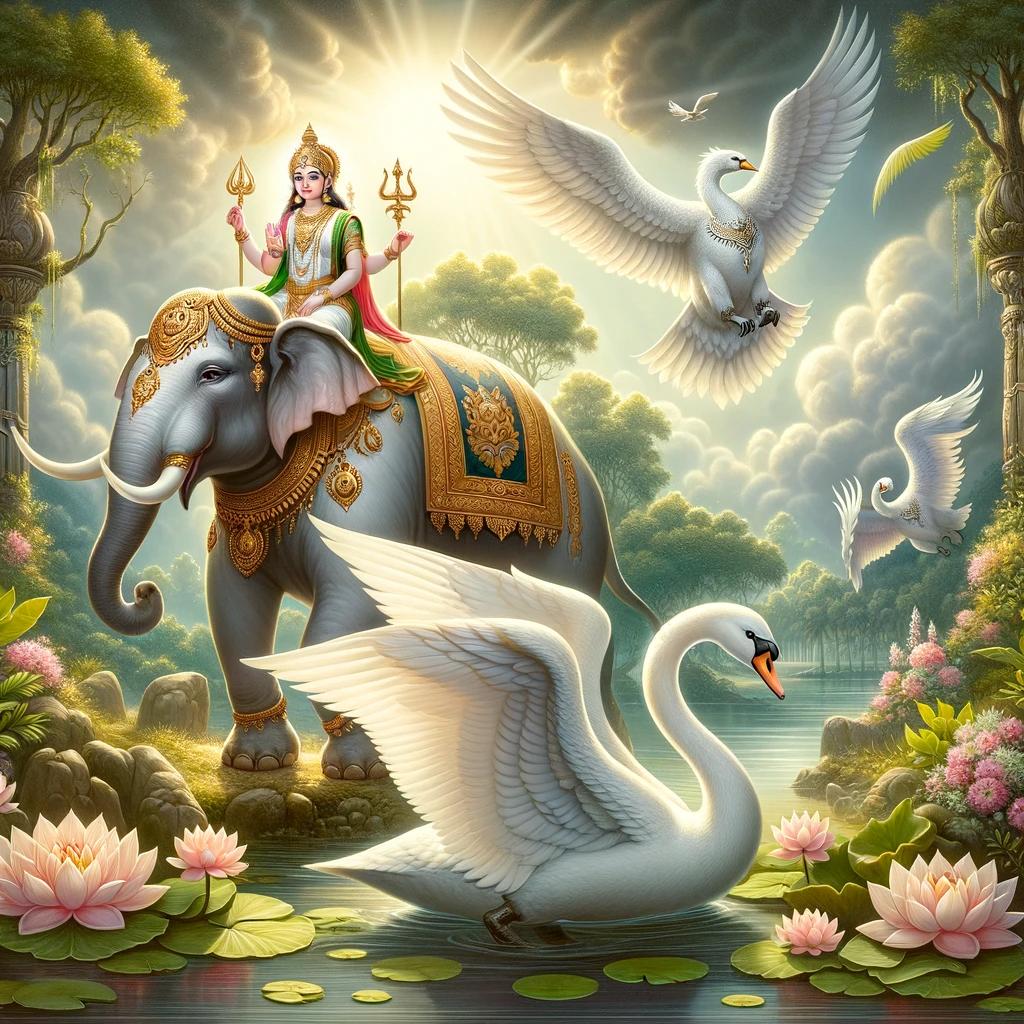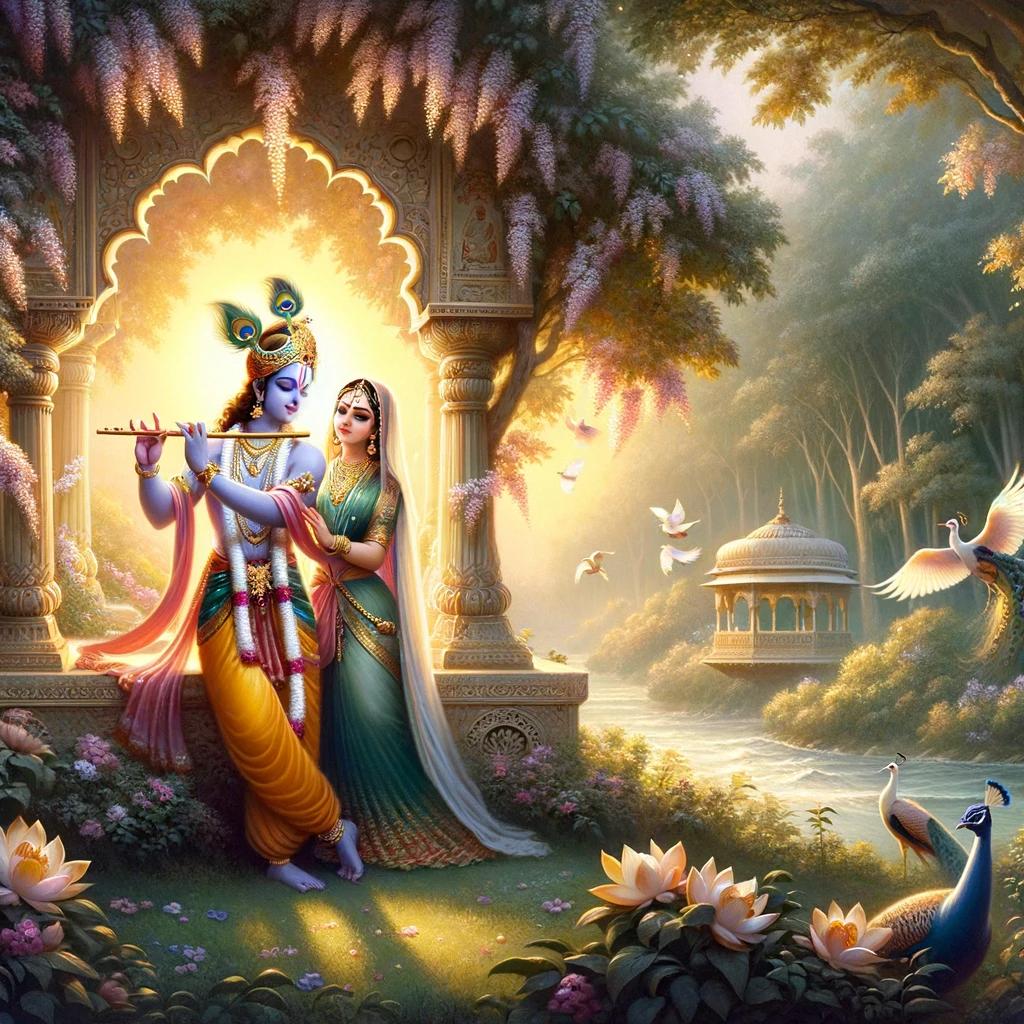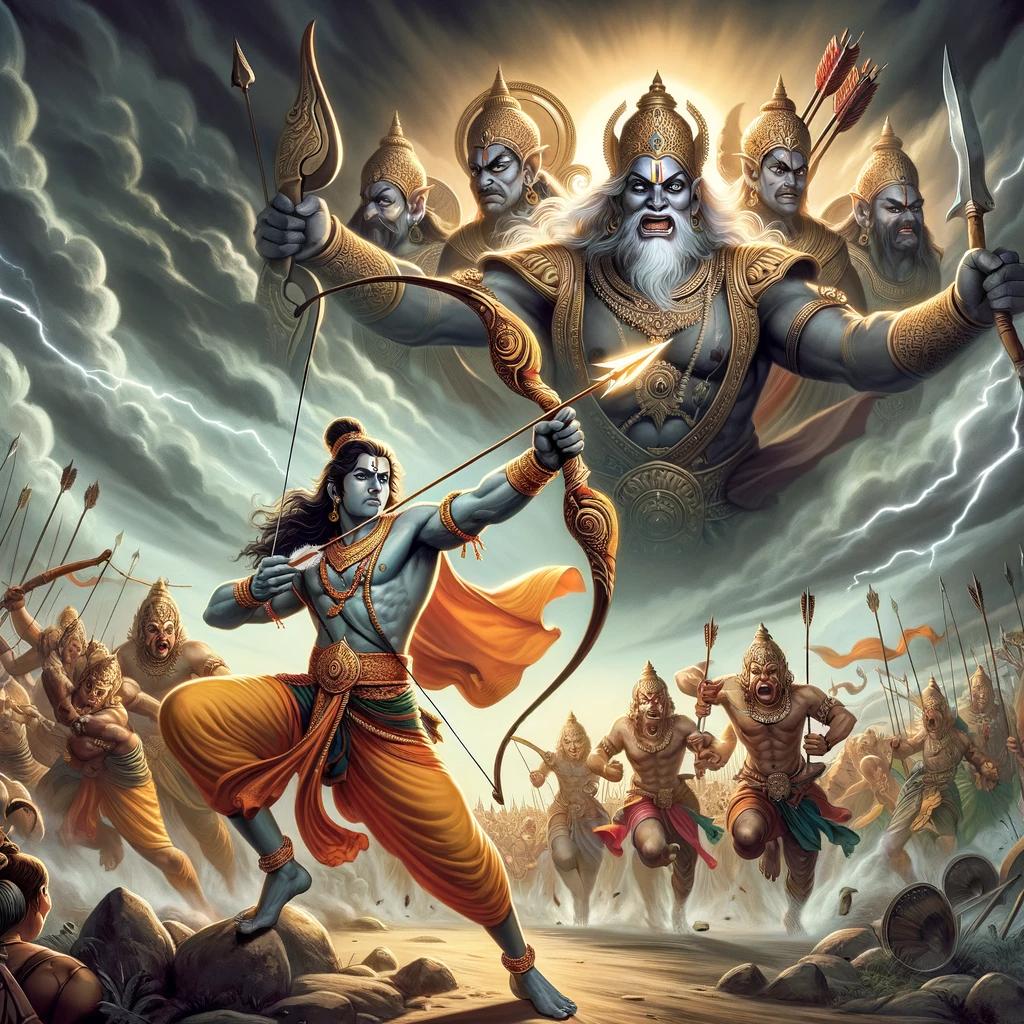Ashwasena in Mahabharata: The Final Battle – Ashwasena’s Demise
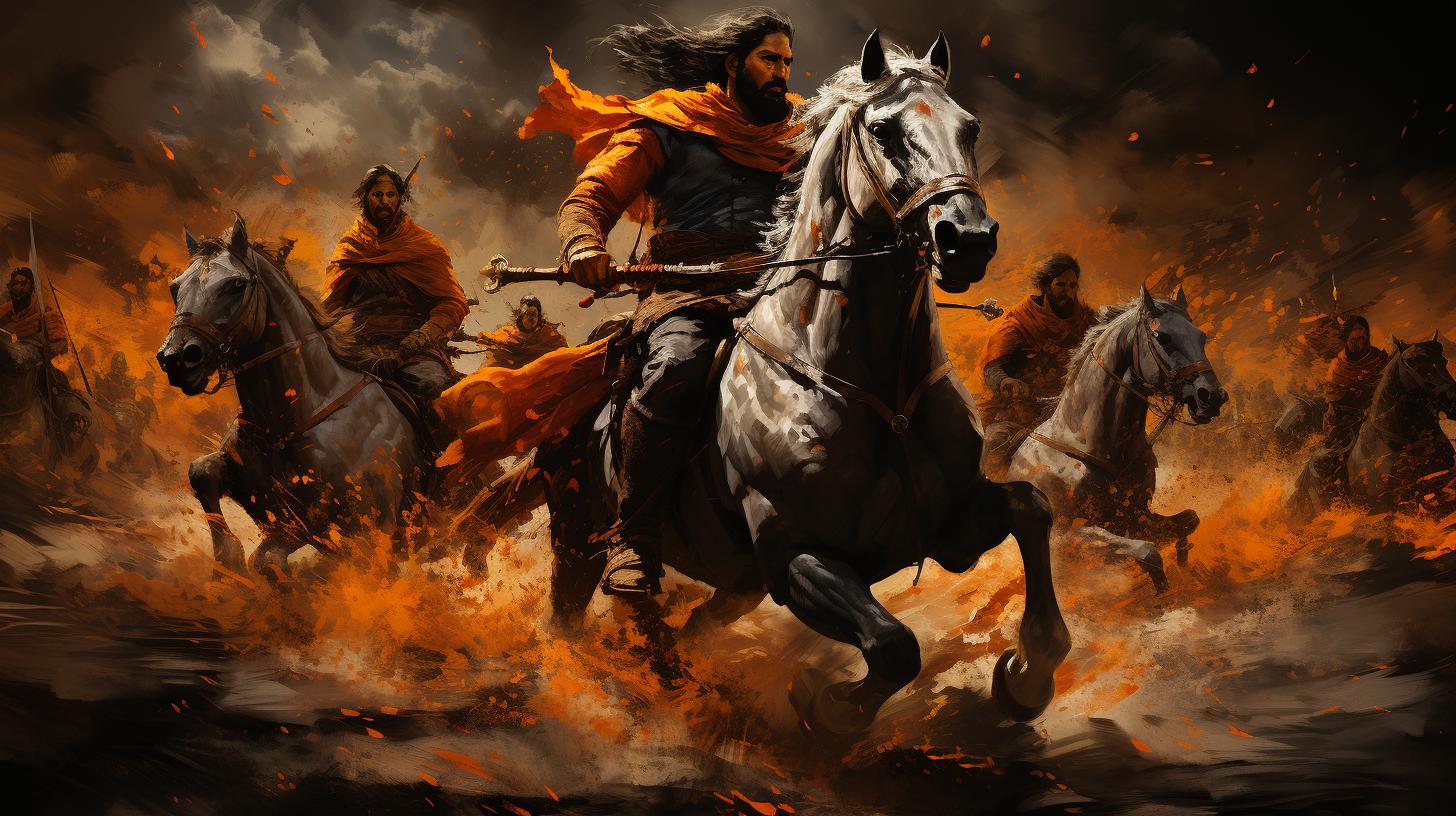
Ashwasena, the serpent in the Mahabharata, holds a significant role in the Indian epic. Originating as the son of Thakshaka, Ashwasena’s encounter with Arjuna and Agni brought forth a curse, rendering him homeless.
This curse fueled Ashwasena’s resentment towards Arjuna. Later, in the Mahabharata war, Ashwasena played a part in attacking Arjuna’s crown. Despite Karna’s refusal to accept the Nagastra, Ashwasena met his demise.
Understanding the significance of Ashwasena in the Mahabharata aids in unraveling the intricacies of this ancient tale.
The Background of Ashwasena
Ashwasena in Mahabharata is a fascinating character with an intriguing background. This section delves into his origins as the son of Thakshaka, a prominent serpent, and his significant encounter with Arjuna and Agni.
Ashwasena’s Origins: Son of Thakshaka
Ashwasena’s lineage can be traced back to Thakshaka, a powerful serpent mentioned in the Mahabharata.
According to the ancient epic, Ashwasena was born as the son of Thakshaka, inheriting his father’s serpentine qualities and abilities.
Ashwasena’s Encounter with Arjuna and Agni
One notable event in Ashwasena’s life is his encounter with Arjuna, the renowned warrior, and Agni, the god of fire. It happened when Arjuna and Krishna were resting by the banks of the Yamuna river during the scorching summer.
Seeking assistance, Agni approached Arjuna for help in consuming the Khandava forest. Arjuna willingly agreed, and in gratitude, Agni bestowed upon him the Gandiva bow, a white horse, and divine weapons.
As Agni began to engulf the forest in flames, Lord Indra intervened by causing rain to extinguish the fire. However, Arjuna used his remarkable archery skills to craft a protective shield of arrows, preventing the rain from reaching the fire.
In the midst of this chaos, Ashwasena, the serpent, attempted to escape but was impeded by Arjuna’s arrow. Despite the mother serpent’s efforts to rescue Ashwasena, she met her demise, decapitated by Arjuna’s arrow.
Indra, witnessing the perseverance of Ashwasena, unleashed strong winds and a torrential downpour to save him. The attack left Arjuna unconscious, and Ashwasena seized the opportunity to escape, harboring deep-seated resentment against Arjuna.
Following this encounter, Arjuna, upon regaining consciousness and realizing Ashwasena’s escape, pronounced a curse upon the serpent, decreeing that he would find no refuge anywhere. This curse further fueled Ashwasena’s animosity towards Arjuna.
This section provides a glimpse into Ashwasena’s background, highlighting his origins as Thakshaka’s son and shedding light on his impactful encounter with Arjuna and Agni.
The Curse on Ashwasena
Within the epic Mahabharata, Ashwasena, the serpent son of Thakshaka, becomes entangled in a curse that shapes the course of his existence. This curse originates from Arjuna, as a consequence of their fateful encounter by the riverside.
Arjuna’s curse carries a weighty consequence for Ashwasena’s future, leading to his state of homelessness and igniting a deep-seated resentment within him.
Arjuna’s Curse: Ashwasena’s Homelessness
The turning point in Ashwasena’s life occurs when Arjuna, while aiding Agni in consuming the Khandava forest, hinders the serpent’s escape with an arrow. Although Ashwasena’s mother manages to rescue him from the fire, Arjuna’s arrow tragically beheads her.
In the aftermath, when Arjuna regains consciousness, he realizes Ashwasena’s disappearance and, filled with anger, imparts a curse upon him. This curse condemns Ashwasena to a life without a place of refuge, forever wandering without finding solace.
The Weight of the Curse
Arjuna’s curse carries a profound impact on Ashwasena’s existence. Stripped of any safe haven, the serpent must navigate a path of perpetual unrest and seek shelter that perpetually eludes him. This curse serves as a constant reminder of the animosity between Ashwasena and Arjuna, fueling the serpent’s resentment and shaping his actions throughout the Mahabharata.
Embracing Homelessness
Ashwasena’s curse-induced homelessness becomes a defining characteristic in his narrative. It influences his decisions and ultimately shapes his role in the events that unfold during the Mahabharata war. The weight of the curse pushes Ashwasena to walk a path fueled by vengeance, seeking retribution against Arjuna for the curse that forever denies him a place to call home.
As Ashwasena’s journey unfolds, his curse intertwines with the epic narrative of the Mahabharata, adding depth and complexity to the overall tale. Understanding the significance of this curse aids in unraveling the motives behind Ashwasena’s actions and the ensuing consequences that arise.
Ashwasena’s Resentment towards Arjuna
After the events that transpired during the consumption of the Khandava forest, Ashwasena developed a deep resentment towards Arjuna. His mother’s decapitation by Arjuna’s arrow, in an attempt to save Agni, left a lasting mark on Ashwasena’s heart.
Filled with anger and a burning desire for revenge, Ashwasena longed for an opportunity to settle the score. The curse placed upon him by Arjuna only fueled this resentment further, ensuring that the serpent would find no refuge or solace anywhere.
As the epic war of the Mahabharata unfolded, Ashwasena saw his chance to confront Arjuna. He seized the moment during Arjuna’s battle against Karna. Taking refuge within the Nagastra, a devastating arrow launched by Karna, Ashwasena attacked Arjuna’s crown, scorching it with fiery venom.
However, fate had a different plan in store. Despite the damage inflicted, when the Nagastra returned to Karna, he chose not to accept it. This decision enraged Ashwasena even further, intensifying his resentment towards Arjuna.
Driven by vengeful fury, Ashwasena launched an assault on Arjuna, but his efforts proved futile against the skilled warrior. In the heat of battle, Arjuna ultimately prevailed, delivering a fatal blow that ended Ashwasena’s life.
The resentment harbored by Ashwasena and his subsequent demise serve as a powerful testament to the intertwining of fate, destiny, and the consequences of one’s actions in the grand tapestry of the Mahabharata.
Ashwasena’s Role in the Mahabharata War
Ashwasena’s role in the Mahabharata war was marked by his attempts to inflict harm upon Arjuna. He played a significant part in key events during this tumultuous battle, including his attack on Arjuna’s crown and his involvement with Karna’s Nagastra.
These incidents demonstrated Ashwasena’s determination to exact revenge and his pivotal role in shaping the outcome of the war.
Ashwasena’s Attack on Arjuna’s Crown
During the fierce battle between Arjuna and Karna, Ashwasena took advantage of the chaos and targeted Arjuna’s crown. Concealing himself within a deadly arrow, he aimed precisely and set fire to Arjuna’s crown, attempting to undermine his opponent’s morale and strength.
This unexpected attack showcased Ashwasena’s cunning strategies and his relentless pursuit of vengeance.
Karna’s Refusal to Accept the Nagastra
Ashwasena’s resentment grew further when Karna, despite launching the Nagastra, refused to accept its inevitable return. Karna’s noble refusal infuriated Ashwasena and drove him to launch a direct attack against Arjuna, seeking to avenge his thwarted efforts.
This clash highlighted Ashwasena’s determination and desire to seek retribution on behalf of his fallen mother and himself.
Ashwasena’s role in the Mahabharata war was not only marked by his personal vendetta against Arjuna but also by the ripple effects his actions created within the larger narrative.
His attacks, though ultimately unsuccessful, showcased the underlying tensions and complexities of the epic battle. As the war progressed, the presence of Ashwasena heightened the stakes and emphasized the deep-seated animosity that permeated the conflict.
The Final Battle: Ashwasena’s Demise
As the Mahabharata war raged on, a pivotal moment arrived when Ashwasena, the serpent, faced his ultimate fate. Consumed by resentment and fueled by his curse, Ashwasena sought revenge against Arjuna, the renowned warrior.
In a climactic exchange between Arjuna and Karna, Ashwasena found an opportunity to strike. Karna launched the powerful Nagastra, concealing the serpent within, aiming at Arjuna’s fearful crown, symbolizing his invincibility.
The arrow soared through the air, carrying Ashwasena’s fiery wrath. As it made contact with Arjuna’s crown, flames engulfed the royal symbol, threatening the very essence of his power.
However, fate took an unexpected turn.
Despite the success of his attack, Karna refused to accept the arrow’s return, leaving Ashwasena’s malevolent intentions unfulfilled.
Frustrated and furious, Ashwasena, driven solely by vengeance, disregarded the lack of acceptance and persisted in his assault against Arjuna.
His fiery wrath, undeterred by thwarted plans, surged towards his intended target.
- Arjuna, utilizing his exceptional archery skills and divine weapons, braved the onslaught with unwavering determination.
- With each arrow released in defense, Arjuna aimed not only to protect himself but also to extinguish the fiery menace that Ashwasena had become.
- The battlefield quaked with the clash of their wills, resonating with the intensity of their confrontation.
Finally, in a decisive moment, Arjuna’s arrows hit their mark, striking Ashwasena with lethal precision.
The serpent, consumed by his own hatred, met his untimely demise in a blaze of fiery glory.
The final battle between Arjuna and Ashwasena embodied the eternal struggle of good versus evil, exemplifying the consequences of harboring malice and the inherent power of righteousness.
Significance of Ashwasena in Mahabharata
Ashwasena holds a significant role in the epic Mahabharata, showcasing the intricate web of relationships, curses, and destiny that shape the narrative. Through his character, we witness the consequences of actions and the power of curses within this ancient tale.
Ashwasena’s origins as the son of Thakshaka, the serpent king, emphasize his connection to the supernatural realm. His encounter with Arjuna and Agni highlights the pivotal role he plays in the unfolding events.
As Arjuna accepts the task of assisting Agni in consuming the forest, Ashwasena becomes entwined in this divine narrative, setting the stage for the conflicts and curses to come.
The curse on Ashwasena, delivered by Arjuna as a result of their encounter, renders him homeless.
This curse amplifies Ashwasena’s resentment towards Arjuna, fueling his desire for revenge and shaping his actions during the Mahabharata war.
During the war, Ashwasena’s attack on Arjuna’s crown demonstrates the depth of his animosity.
His ability to hide within Karna’s Nagastra gives him the opportunity to inflict harm upon his nemesis. However, Karna’s refusal to accept the cursed arrow further intensifies Ashwasena’s fury, as his vengeful efforts are thwarted.
The final battle marks the culmination of Ashwasena’s role in the epic. Despite his relentless pursuit of revenge, he is ultimately defeated by Arjuna’s prowess. Ashwasena’s demise serves as a reminder of the intricate balance between fate and personal agency within the Mahabharata.
The significance of Ashwasena lies not only in his individual story but in the broader themes explored throughout the Mahabharata. His tale symbolizes the repercussions of curses, the struggle between destiny and free will, and the complexities of human relationships.
Ashwasena’s presence enriches the narrative, adding depth and meaning to the overall story.
.

